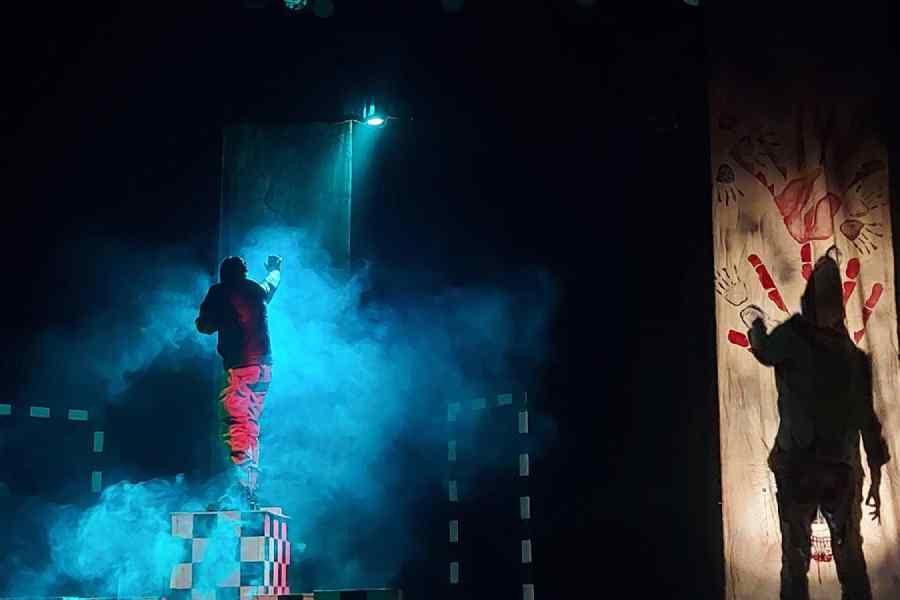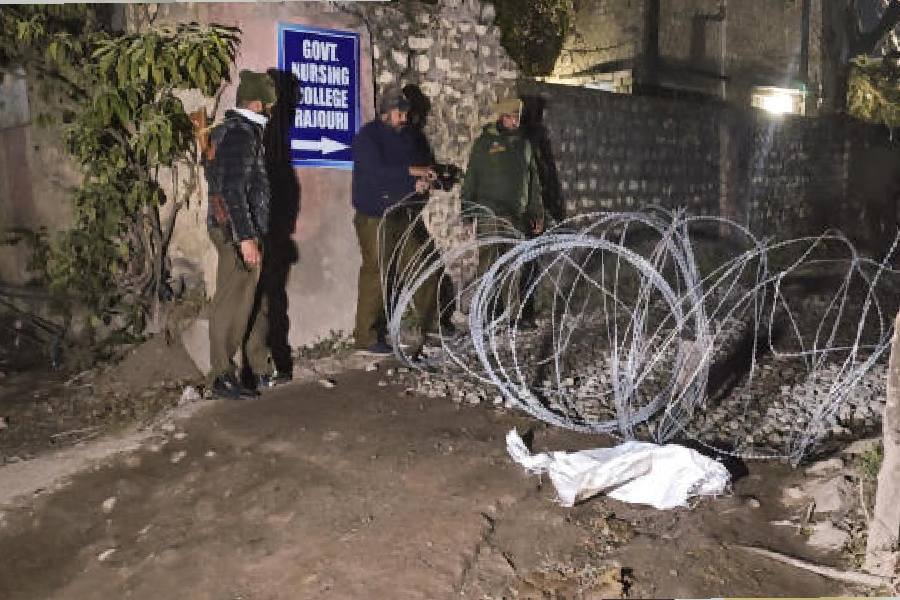Monodrama, despite its portability and potentiality to explore an individual’s psyche, has lost its momentum in Bengal of late. Two-handers have successfully filled the vacuum. Incidentally, two recently staged two-handers threw light on the darker side of group theatre practice in the state, including the systematic marginalisation of women. This assumes significance in the wake of the Justice for R.G. Kar movement.
In Kalyani Natya Charcha Kendra’s Bhorer Baranda, the heroine (Suparna Das) accidentally finds herself in the drawing room of an elderly doctor (Kishore Sengupta) when inclement weather restricts her from returning home late in the evening. The night-long conversation that ensues brings individuals from two generations closer through empathy. The woman opens up about her wounds from when her husband — a theatre director — jilted her for another woman. The old man shares his love and longing for his dead wife. Pradipta Bhattacharya’s script keeps things mostly under wraps till the grandfather clock announces the crack of dawn and the golden glow
of Mount Kanchenjungha fills the hollowness of modern existence. The seasoned actors, under Sengupta’s direction, play it straight from the heart, although hardly allowing any adrenaline rush.
On the other hand, it is an adrenaline rush that enhances Aajker Hamlet (picture) by Khardah Dwi-Sattik Natyasanstha. Prasun Banerjee adapts Richard James’s nerve-wracking thriller, I Am Hamlet (2011), with an eye on the exploitation of women in Bengali group theatre. Banerjee, who also plays a theatre director who is conducting an audition for Hamlet’s part, keeps to the peripeteia in the original but takes a few artistic liberties, making us believe in a suburban theatre group which pronounces Shakespeare’s blank verse and 19th-century Bengali translations of Hamlet with equal felicity. The experiment pays off mostly as Sumit Kumar Roy, Banerjee’s co-actor and also the director of the production, displays a fascinating command over both linguistic registers. An arresting lighting scheme by Bappa and a subdued music design by Roy make this play one of the best two-handers of recent times.











